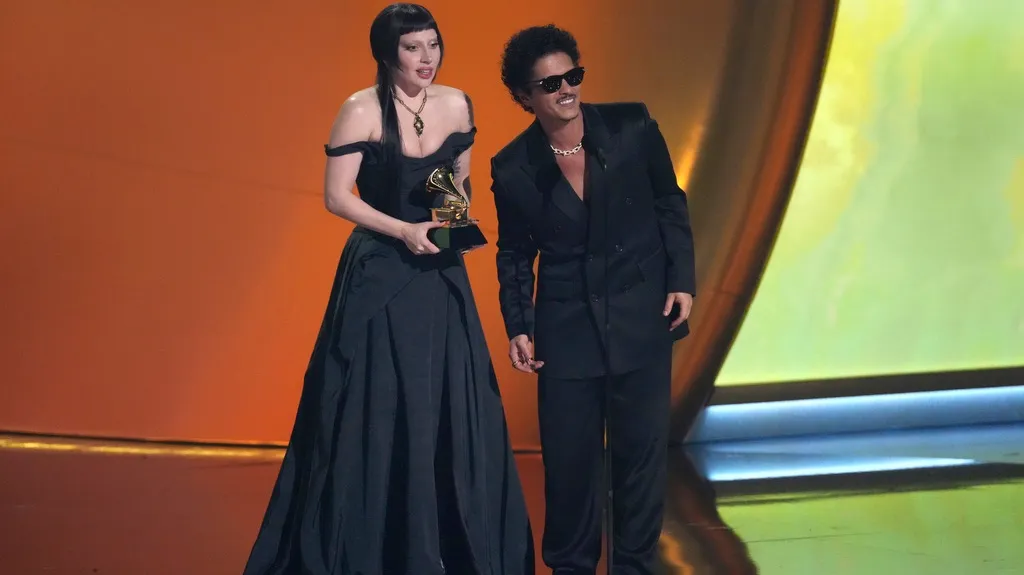May 20, 2011
Midnight In Paris
Kilian Melloy READ TIME: 4 MIN.
Woody Allen continues his international adventure with "Midnight in Paris," a sweet, if slight, undertaking that finds a mild-mannered Hollywood screenwriter, Gil (Owen Wilson) revisiting The City of Lights, and exploring nostalgia--the theme of his unpublished novel--in greater detail than he might ever have expected.
Gil once lived in Paris, and he's regretted leaving ever since--career success and his engagement to a gorgeous, privileged young woman named Inez (Rachel McAdams) notwithstanding. A family trip brings Gil, Inez, and Gil's future in-laws (Kurt Fuller and Mimi Kennedy) to Paris, where Gil rhapsodizes about rain and jazz and the city's literary tumult of the 1920s. His musings bore Inez, who is much more enraptured (and enamored) by her old friend Paul (Michael Sheen), who happens to be spending a few months lecturing at the Sorbonne.
It's obvious that Gil and Inez are not made for each other--her disapproving parents see it, but the lovebirds don't. We in the audience see it, too, and in case early clues go unnoticed, Allen puts it across in neon and exclamation points when Inez tells Gil to shut up and listen to Paul's long-winded lectures about everything from French wines to the sculptures of Rodan. The joke is how empty (and erroneous) Paul's running commentary is--a fitting diversion for Inez, who is as spoiled and vacuous a little rich girl as they come.
If this were the film's central plot, Allen might have gotten away with a light farce about how a rumpled, tenuous character like Gil could ever have gotten engaged to a sleek, upper-crust daughter of the elite like Inez. But this is just the backdrop--illustrating Gil's dissatisfaction with the present and his yearning for a simpler, yet more meaningful, past--for the real movie Allen wants to make, a fantasy about larger than life characters and the small fish--Gil--who finds himself swimming in the strange waters of a large and legendary pool of talent.
Gil is out for a walk to clear his head and escape Paul one evening, when a vintage Peugeot rounds a corner, classy and lemon yellow, like a latter-day coach of the sort that might whisk a latter-day Cinderella off to a ball. In this case, however, magic starts, rather than ends, at midnight, and Gil isn't off to a ball but rather the 1920s literary salon of Gertrude Stein (Kathy Bates, in a bit of inspired casting), with stops along the way to various parties and pubs where Scott and Zelda Fitzgerald (Tom Hiddleston and Alison Pill), Ernest Hemingway (Corey Stoll), and the surrealist holy trinity of Salvador Dal� (Adrien Brody), Bu�uel (Adrien de Van), and Man Ray (Tom Cordier) quickly befriend him. (Like any true friends, these last three actually seem to understand Gil, or at least his circumstances as an inadvertent time traveler; then again, as Gil notes, they are surrealists.) Cole Porter tinkles on piano; T.S. Eliot makes a brief appearance; Stein critiques Gil's novel; Hemingway exhorts manliness, courage, and the starch to declare oneself the absolute best and launch into a fistfight with anyone who disagrees.
But Gil is more a lover than a fighter, and when his eye alights on Adriana (Marion Cotillard)--who is ensconced in a torrid affair with Pablo Picasso (Marcial Di Fonzo Bo)--the morale of the odd fairy tale he's found himself in starts to emerge. But not all at once: Unlikely (and ultimately fruitless) twists ensue, such as an antique diary that documents Gil's presence in the 1920s and suggests a surefire means to secure Adriana's affections before she flits off to some other titan of the art world.
Finally, Gil breaks out of his dithering with the announcement, "I'm having an insight." A minor one, he adds, but useful even so. That's a good way to summarize the film. While Allen has played with fantasy before, and to better effect elsewhere, as in "The Purple Rose of Cairo," his observation here is valid all the same. The movie is crammed with all the Woody Allen one-liners you might expect--really, they shoot by so quickly, and with typical understatement, that they qualify more as half-liners--and the director's penchant for casting a wide, diverse net when it comes to casting pays off here, as it often does.
This is no "Sweet and Lowdown," but it is sweetly disposed and dusted with charm. More important, Allen's new film is a few steps up from the rote exercises he's churned out in recent years, such as "Curse of the Jade Scorpion" and "Scoop," and the overt retreads such as "Match Point."
Of course, Allen's more recent work is also littered with gems: "Vicky Cristina Barcelona" and "Small Time Crooks," for example. More often than not, though, what we've seen in the last few years tends more toward the "You Will Meet A Tall Dark Stranger" side of things--competent, but hardly inspired.
"Midnight in Paris" is about on par with "Whatever Works," less because of the comedy (Larry David was hilarious in that film; Owen Wilson is merely amusing in this one), but because for all the fun Allen has here--in one delicious scene, Bu�uel hears the plot of "The Exterminating Angel," years before making the film, and his reaction is one of befuddlement--he also imparts a life lesson of the sort one might expect from someone with hard-won experience.
Kilian Melloy serves as EDGE Media Network's Associate Arts Editor and Staff Contributor. His professional memberships include the National Lesbian & Gay Journalists Association, the Boston Online Film Critics Association, The Gay and Lesbian Entertainment Critics Association, and the Boston Theater Critics Association's Elliot Norton Awards Committee.


